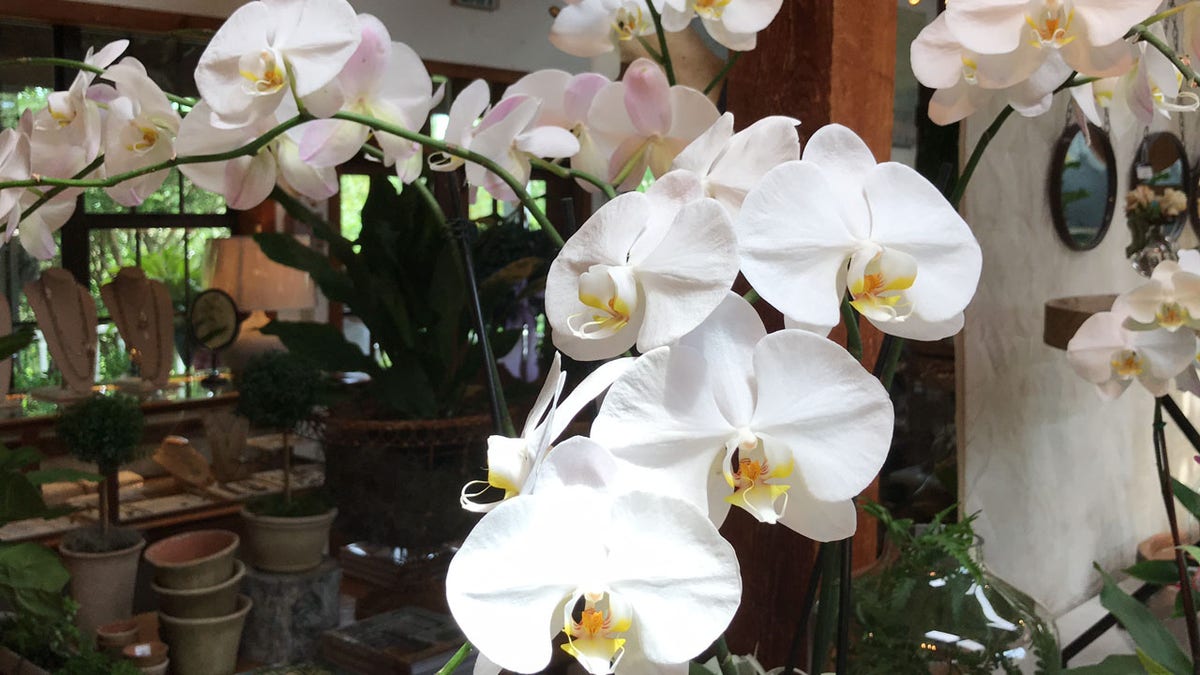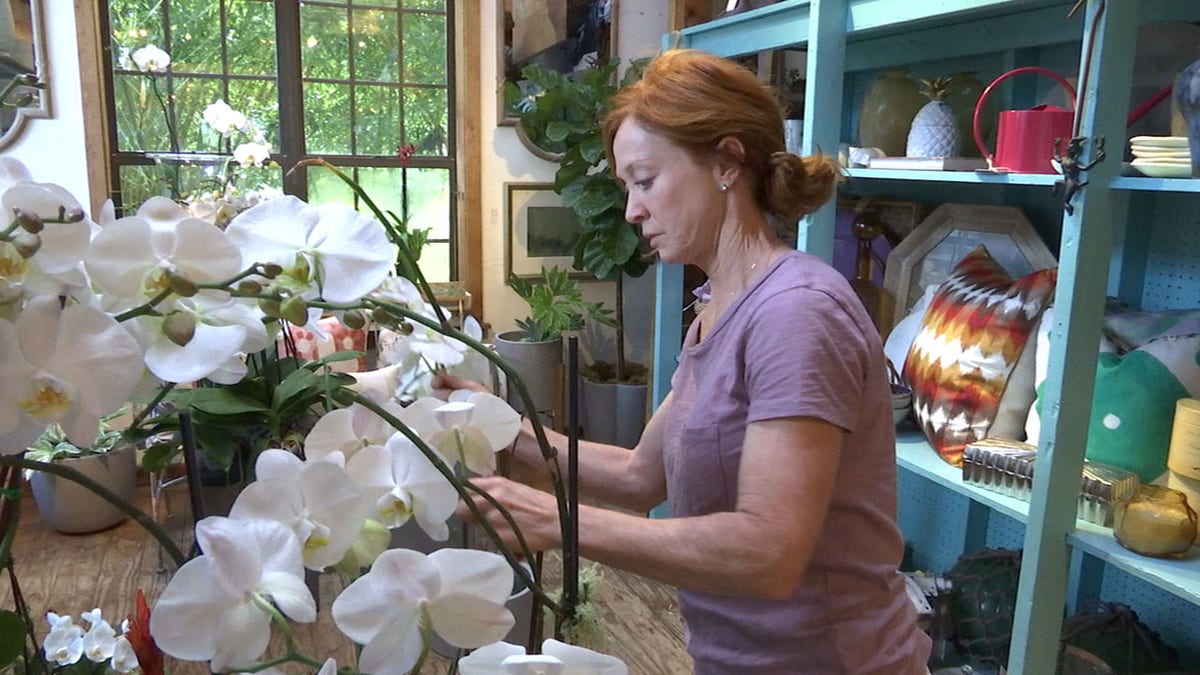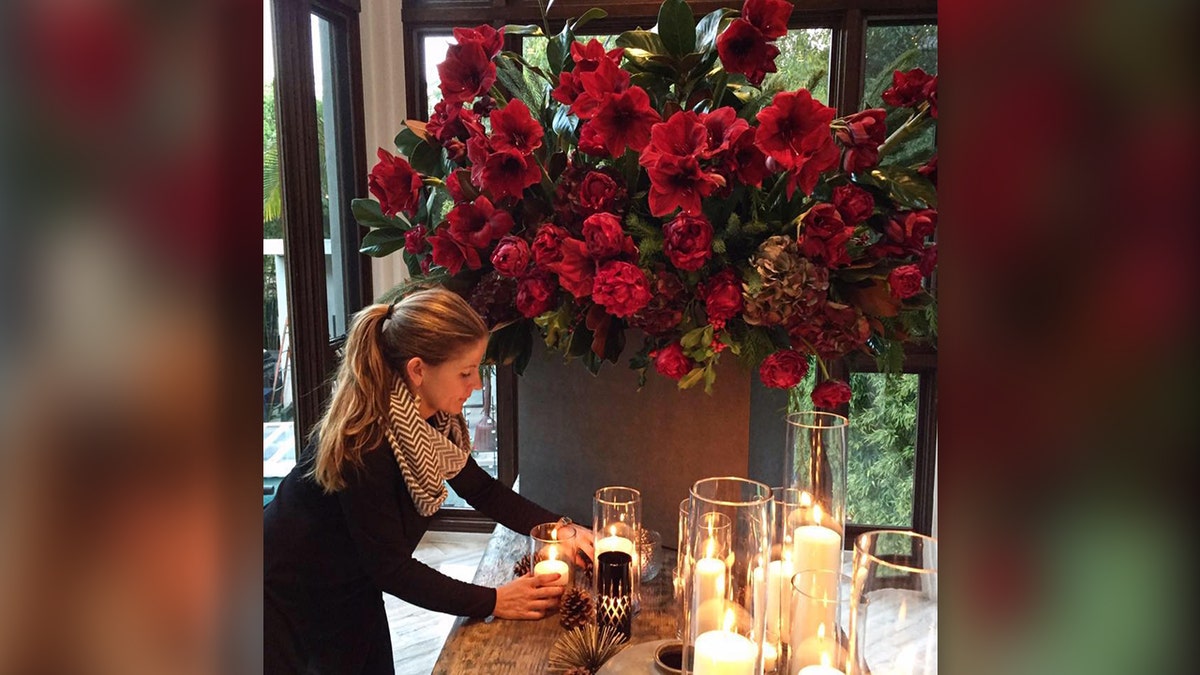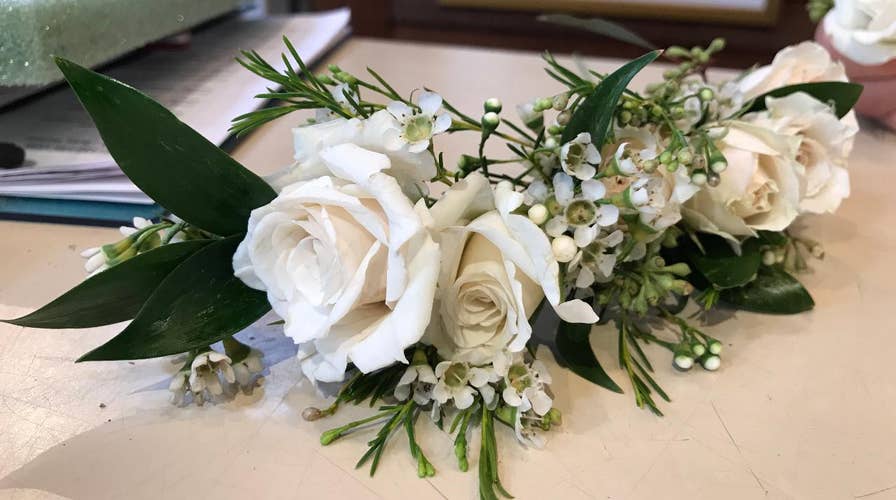Florist license requirements becomes a thorny issue
Louisiana will remain the only state in the country to require florists to be tested to obtain a license to sell flowers after a proposal to change the law failed this month.
BATON ROUGE, La. – In Louisiana, florists must know the proper storage temperature for plants, wiring methods for various flowers and how to construct a cascade bouquet. They pay $100 a year.
The Pelican state is the only state in the country that requires a license to sell flowers, a distinction that has become a point of contention among florists who say it legitimizes their trade and state lawmakers who feel Louisiana is too overwhelmed with a dizzying number of professional license requirements.
State lawmakers wanted to cut back on the number of licenses by eliminating the floral one. That has drawn the ire of florists who take pride in regulating their profession – by weeding out people who know little about floral arrangements.

Orchids sit on display at Red Onion in Baton Rouge. Several florists throughout the state say they want to keep a licensing and testing requirement in place. Louisiana is the only state in the country that requires florists to be licensed. (Fox News)
Part of the licensing process requires applicants to take a written test before they can cut, sell or arrange flowers. Prospective florists must pay $114 fee to take the exam and a $100 licensing fee every year. There are also costs associated with the purchase of a workbook to study for the test.
State Rep. Julie Emerson., R-La., said it was time the state stopped overregulating florists and allow the industry to police itself.
“If we’re going to test competency, let’s make sure it’s enough of a threat to public health and public safety to warrant this type of thing,” Emerson told Fox News. “Otherwise, let’s let the free market dictate who’s a good florist [or] who’s a bad florist.”
Emerson proposed House Bill 561, which passed the state House of Representatives on April 9. The bill, however, failed to move forward.
Emerson’s proposal would have removed the licensing and testing requirement and setup a permit process for florists. Democratic Gov. John Bel Edwards also supported the proposal, but it was struck down by the Louisiana State Senate Committee on Agriculture, Forestry, Aquaculture, and Rural Development. Mike Strain, the commissioner of the Louisiana Department of Agriculture and Forestry also spoke out against Emerson’s bill.

Brenda Goff, owner of Red Onion in Baton Rouge, said she can see both sides of the argument to require florist to obtain a license to sell flowers. (Fox News)
Strain said the license helps ensure people are properly trained to cut flowers and help prevent the introduction and spread of diseases and pests.
Some members of the Louisiana State Florist Association, or LSFA, advocated against the repeal of the licensing requirement.
“House Bill 561 would have shifted the way in which florist are classified from professionals to those who hold an occupation,” said Samantha Bates, the president of LSFA, provided a statement several days after HB 561 failed to move forward.
But not all florists in the state fully agree. Brenda Goff, the owner of Red Onion in Baton Rouge, said the licensing requirements make it cumbersome for fledgling florists trying to make it in the business.
“I actually want to encourage young people to get into this,” Goff said, “and I don’t want anything that might deter them from it.”
While Goff emphasized her respect for other florists that went through the licensing process, she also said it should be up to the consumer to decide what is and isn’t a quality product.

Alison Franchi, founder of La Petite Gardenia in Los Angeles, has worked as a florist in several states for the past 20 years. Franchi says safety reasons touted by proponents don’t justify the license requirement. (La Petite Gardenia)
Alison Franchi a floral industry expert and founder of La Petite Gardenia in Los Angeles, said the licensing requirement may legitimize florists in the state but she doesn’t believe the safety reasons described by proponents of the law are worth it.
Proponents of the licensing requirement believe it will better prepare florist for how to deal with pests or other invasive plant species.
“Generally, just for the flowers to come into the country, they have to go through a process with the [U.S.] Department of Agriculture,” Franchi said. “Maybe once in a while I’ll see a bug but it could have come in from outside. Nothing has ever been harmful, so I don’t think that justifies it.”





